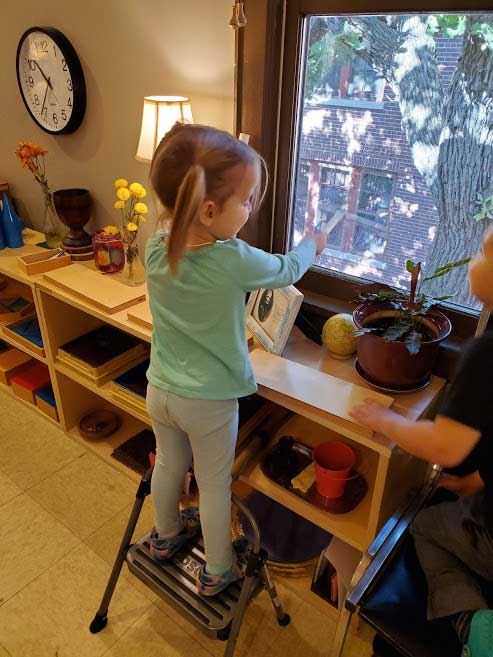
Enrolling your child in a preschool can yield many great benefits, such as helping your child learn how to socialize and self-regulate. Children who attend a preschool may also have a leg up on other students since they typically have an increased vocabulary and a foundation of counting and pattern recognition. If you aren’t sure which preschool program to pursue, consider Montessori education.
The Montessori Method was developed by educator Maria Montessori, and her philosophy was that because children are eager to learn, they can initiate and direct their learning in a supportive environment.
Instead of just having your young child sit at a desk and receive instruction, a Montessori program provides lots of activities that can help your child develop his or her motor skills.
What Are Motor Skills?
Motor skills is a broad term that refers to the development of muscle movement in the body. The development of motor skills helps your child’s cognitive development and helps him or her explore the world.
Motor skills can be divided up into different categories, such as gross motor skills, fine motor skills, and sensory development.
Fine Motor Skills
Fine motor skills are small, coordinated muscle movements, such as using the hands, fingers, and wrists to grasp objects, draw, write, etc. At Montessori schools, your child will be able to engage in creative activities that develop manual dexterity, such as weaving, pouring and scooping sand, stacking blocks, gluing paper, and putting basic puzzle pieces together.
Gross Motor Skills
Gross motor skills are large coordinated muscle movements, such as climbing, walking, or jumping. Montessori programs offer physical activities that improve your child’s health, balance, and muscle memory.
Sensory Development
Sensory development goes hand in hand with muscle movement. Your child will be able to start developing hand-eye coordination. He or she can start seeing the link between physical movement and other senses. For instance, the school may provide musical activities so that you child can see how rhythmic movement can match up with sound.
What Are the Long-Term Gains of Developing Motor Skills?
School curriculums that focus on motor skills will help your child develop independence. For instance, the school may teach your child how to use a zipper, unbutton buttons, etc. so that he or she can start dressing him- or herself for school.
Movement-based tasks are also linked to the brain development that’s necessary for children to learn how to read and write. Montessori activities, like following measuring ingredients in a recipe, can also help your child link abstract mathematical concepts to physical movement.
Furthermore, school curriculums that focus on developing motor skills can transfer to practical tasks. Some Montessori schools even have chore-like activities in their curriculums, such as:
- Washing windows
- Sweeping
- Watering classroom plants
- Feeding class pets
- Setting a table
These types of activities help your child develop self-confidence, a sense of responsibility, and a good work ethic.
These types of practical activities should be reiterated at home. Research shows that children who participate in household tasks at a young age are more likely to succeed in meeting career goals in adulthood. Although it may take longer to clean the house with your child’s help, be sure to include him or her in the vacuuming, dusting, etc.
Montessori curricula that offer practical tasks also help children learn that gratification isn’t always instant. For example, if your child plants a garden at the school, your child may have to be patient for plants to sprout or bud.
Reach out to us at Miniapple International Montessori School for more information about the Montessori philosophy and to learn more about how our curriculum develops motor skills.

